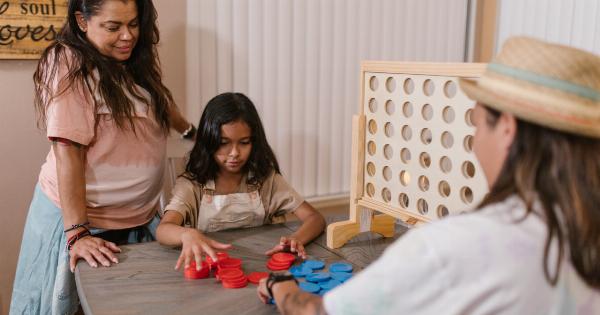Love is one of the most powerful emotions that humans can experience. It comes in many different forms, but at its core, love is an intense feeling of affection and connection with others.
While love is a beautiful and transformative emotion, it can also be a complicated one. In this article, we will explore the concept that love cannot be selective.
What does it mean for love to be selective?
When we say that love cannot be selective, we mean that true love cannot be limited or restricted by external factors such as race, gender, sexual orientation, or religion.
Love that is selective is always based on some kind of condition or requirement that the other person must meet.
For example, if someone says that they can only love someone who is the same race as them, they are limiting their ability to truly love others who do not fit that requirement.
This type of love is not true love, because it is conditional and based on external factors rather than an inner connection with the other person.
Why is selective love harmful?
When we limit our ability to love others based on external factors, we place constraints on our ability to experience the full range of what love has to offer.
This type of love can lead to discrimination, hatred, and prejudice towards people who are different from us. It can also create barriers to intimacy and closeness with others who we may have connected with if we had not been limited by our own biases or prejudices.
Additionally, selective love can harm our own mental and emotional well-being. When we limit our ability to love, we also limit our ability to receive love from others.
We may miss out on important relationships or connections that could have helped us grow and develop as individuals. We may also experience feelings of loneliness, isolation, and disconnection from others because of our limited ability to love without conditions.
What are the benefits of unconditional love?
When we love without conditions, we open ourselves up to a whole new world of connections, relationships, and experiences. Unconditional love allows us to form deep and meaningful connections with others, regardless of their differences from ourselves.
It also allows us to develop greater empathy, compassion, and understanding for others and their experiences.
Unconditional love also has numerous health benefits, both physically and mentally. Studies have shown that people who are able to give and receive unconditional love have lower stress levels, better immune function, and greater emotional resilience.
They also report higher levels of happiness, life satisfaction, and overall well-being.
How can we learn to love without conditions?
Learning to love without conditions is a process that requires us to examine our own biases, prejudices, and limitations. It requires us to be open and vulnerable with ourselves and with others.
Here are some steps that we can take to cultivate greater unconditional love in our lives:.
1. Practice self-awareness
Self-awareness is the first step towards learning to love without conditions. We must be willing to examine our own thoughts, feelings, and beliefs about ourselves and others.
We must also be willing to acknowledge our own biases and limitations, and work to overcome them.
2. Be open and vulnerable
To love without conditions, we must be willing to open ourselves up to others and be vulnerable. This means allowing ourselves to be seen for who we truly are, flaws and all.
It also means being willing to listen to and accept others, even when they are different from us.
3. Challenge our own biases and prejudices
We all have biases and prejudices, whether we are aware of them or not. To love without conditions, we must be willing to challenge these biases and prejudices and work to overcome them.
This may involve exposing ourselves to new people or experiences that challenge our existing belief systems.
4. Practice empathy and compassion
Empathy and compassion are essential qualities for unconditional love. We must be willing to put ourselves in other people’s shoes and try to understand their experiences and perspectives.
We must also be willing to extend kindness and compassion to others, even when they may not have done the same for us.
Conclusion
Love is a powerful emotion that has the ability to transform our lives and the lives of others. However, love that is selective and conditional can lead to discrimination, hatred, and emotional limitations.
To experience the full benefits of love, we must learn to love without conditions, by being open, vulnerable, and willing to challenge our own biases and limitations. Unconditional love has the power to bring us closer to others and to ourselves, and to lead us towards greater happiness, peace, and fulfillment in our lives.






























